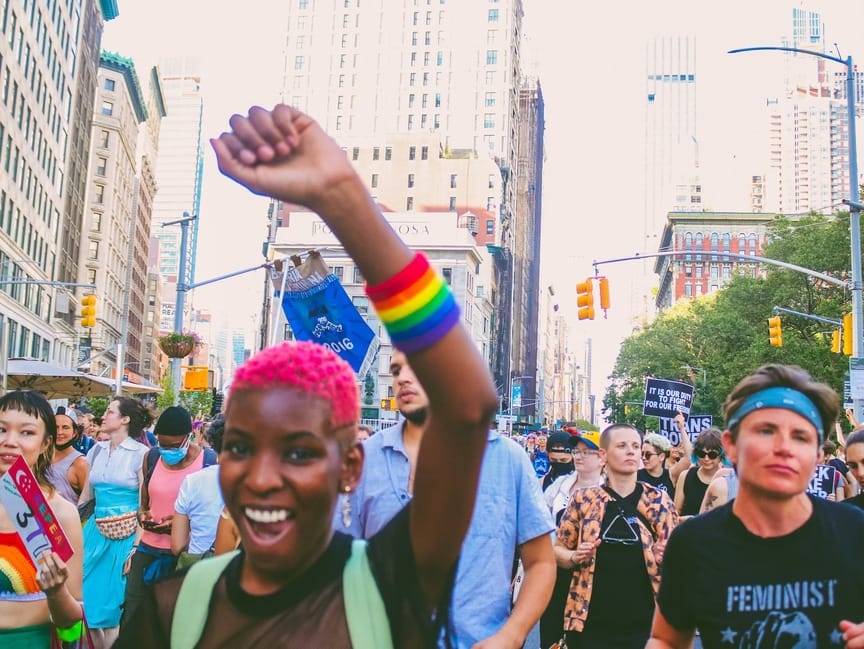LGBTIQ+ Issues
LGBTIQ+ is an acronym denoting the lesbian, gay, bisexual, trans, intersex, queer or questioning community. The sense of support and belonging that many experience within this community can provide relief and affirmation, which are much needed due to the difficulties often faced.
What Are LGBTIQ+ Issues?
The LGBTIQ+ community is rich and diverse, and includes subgroups based on ethnic background, age, income, education, disability, gender, or gender identity. Sadly, because of their gender identity, or sexual orientation, people in the LGBTIQ+ community continue to face problems related to ongoing discrimination in their personal lives, workplace, and the public sphere.
Individuals who identify as transgender, people of ethnic minority backgrounds, and disabled individuals tend to experience higher incidents of discrimination, and often LGBTIQ+ people will try to avoid unequal treatment by altering their lives (for example, hiding a personal relationship, or not being able to come out).
This is because discrimination often leads to a harmful impact on life prospects, relating to employment and economic status, access to health care, and hate crimes. Such issues, along with feelings related to social isolation, rejection, and exclusion can impact mental health, causing depression, anxiety, trauma, or other mental health problems.

Depression & Anxiety
Marginalised people are at higher risk of developing mental health problems like depression and anxiety, including social anxiety.
Eating Problems
Many people in the LGBTIQ+ community are believed to be at higher risk of developing an eating disorder. For example, anorexia nervosa, bulimia nervosa, binge eating disorder, or other feeding and eating disorders.
Low Self-Esteem
LGBTIQ+ issues can impact individuals’ self-esteem, which relates to how one perceives and values oneself. It is perhaps not surprising that issues of self-esteem arise when people experience lack of acceptance and discrimination.
Self-Harm & Suicidality
Self-harm is an issue faced by many in the LGBTIQ+ community. One in eight LGBTIQ+ people between the ages of 18 to 24 have made an attempt to end their lives. And almost half of trans people have reported suicidal thoughts.
Substance Misuse
Research suggests that substance misuse incidents may be higher in the LGBTIQ+ community due to the stressors faced.
What Causes LGBTQ+ Issues?
The causes of the problems faced by the LGBTIQ+ community are not due to them being LGBTIQ+, rather they are due to the poor treatment of LGBTIQ+ people from others and the impact of these problems for individuals’ mental health and wellbeing.
Some examples of poor treatment include: homophobia, transphobia, discrimination, lack of acceptance, social isolation, hate crimes, and lack of access to health care.
How Phinity Therapy Can Help
Phinity are aware that individuals within the LGBTIQ+ community are at greater risk for many reasons, and that they may face additional challenges around accessing support. We therefore aim to provide a safe and accepting space in which individuals are able to openly explore the issues they are faced with.
This might include explorative work to help you make sense of issues surrounding your sexual orientation, or gender identity, or resolving feelings around poor treatment and discrimination.
We will work with you to help you achieve your goals, and this may also entail some strategic work, for example, you may wish to improve relationships with your friends and family, so we can involve them in therapy if you wish to.
Or, you may have other goals, for example, you may wish to build confidence and resilience, achieve a sense of community and belonging, work toward self-acceptance and freedom of self-expression. Whatever your aims for therapy are, will will work with you to achieve your goals.
What Causes LGBTQ+ Issues?How Phinity Therapy Can HelpClients' Common Questions
- Abuse, N. I. on D. (2017, September 5). Substance Use and SUDs in LGBTQ* Populations. National Institute on Drug Abuse. https://nida.nih.gov/research-topics/substance-use-suds-in-lgbtq-populations
- LGBTIQ+ people: statistics. (2021, February). Www.mentalhealth.org.uk. https://www.mentalhealth.org.uk/explore-mental-health/mental-health-statistics/lgbtiq-people-statistics
Stay updated with the latest in mental health through our newsletters. Get valuable tips, hacks, and videos. Explore insightful mental health blogs. Enjoy special offers and be the first to know about new psychotherapy products and services.







